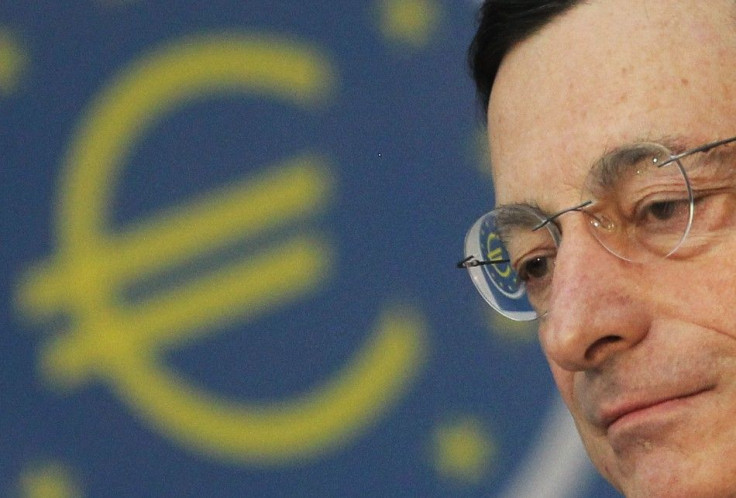Euro Zone Economic, Business Sentiment Drops

Economic and business sentiment in the euro zone fell in April, according to two widely followed surveys.
The European Commission's Economic Sentiment Indicator (ESI) dropped 1.7 points for the 17-nation euro zone, to 92.8, erasing all the gains of the first quarter of 2012. Within the entire 27-nation European Union, the ESI remained stable only on the back of strong economic improvements in the U.K.
Within the euro zone, Italy lost the most ground with its ESI dropping 5.7 points, followed by Spain, which dropped 1.8 points, and Germany, which fell 1 point but remained above the nation's long-term ESI average. The Netherlands' ESI was up. Within the EU, Poland's ESI fell 2.3 points, while Britain's ESI rose.
Further, the European Commission said the Business Climate Indicator, which measures the outlook for exports and production, fell last month. The BCI for the euro zone fell by 0.24 points to -0.52, indicating a generally negative business outlook.
Also Thursday, the Italian National Institute of Statistics (Istat) reported falling business confidence in the nation's economy, the third largest in the euro zone after Germany and France. Istat said its seasonally adjusted market services confidence indicator, which includes the tourism, business, transportation and services sectors, fell to 76, down 6.2 points from March's level.
The news of worsening euro zone economic woes comes as European Central Bank President Mario Draghi called on Thursday for a euro zone growth pact, according to the Wall Street Journal, a view broadly supported by German Chancellor Angela Merkel and French Socialist candidate François Hollande.
The uncertainty about the present situation is very, very high. Any exit strategy is premature given the current economic situation, Draghi said Wednesday, according to the Journal.
© Copyright IBTimes 2024. All rights reserved.





















